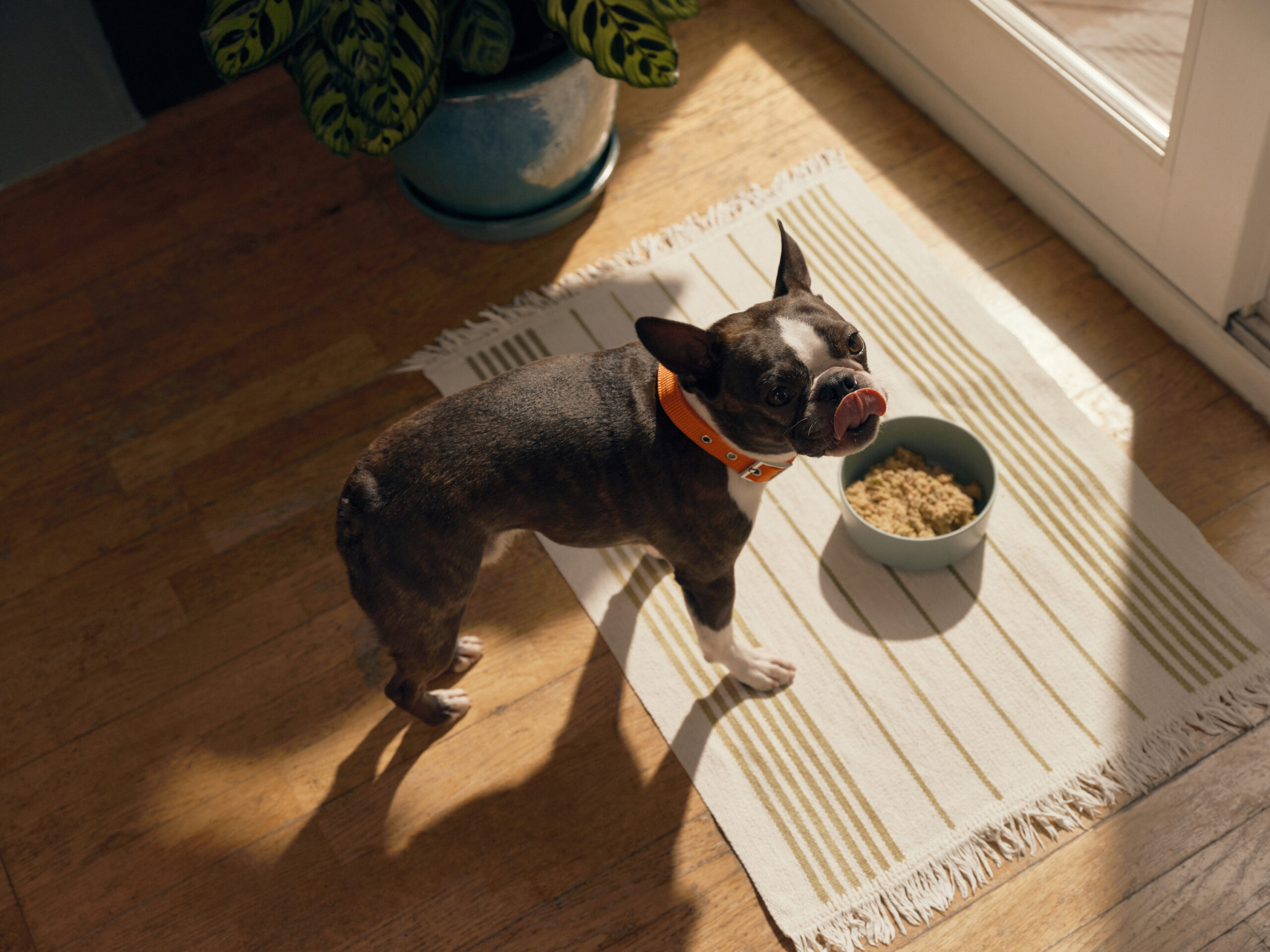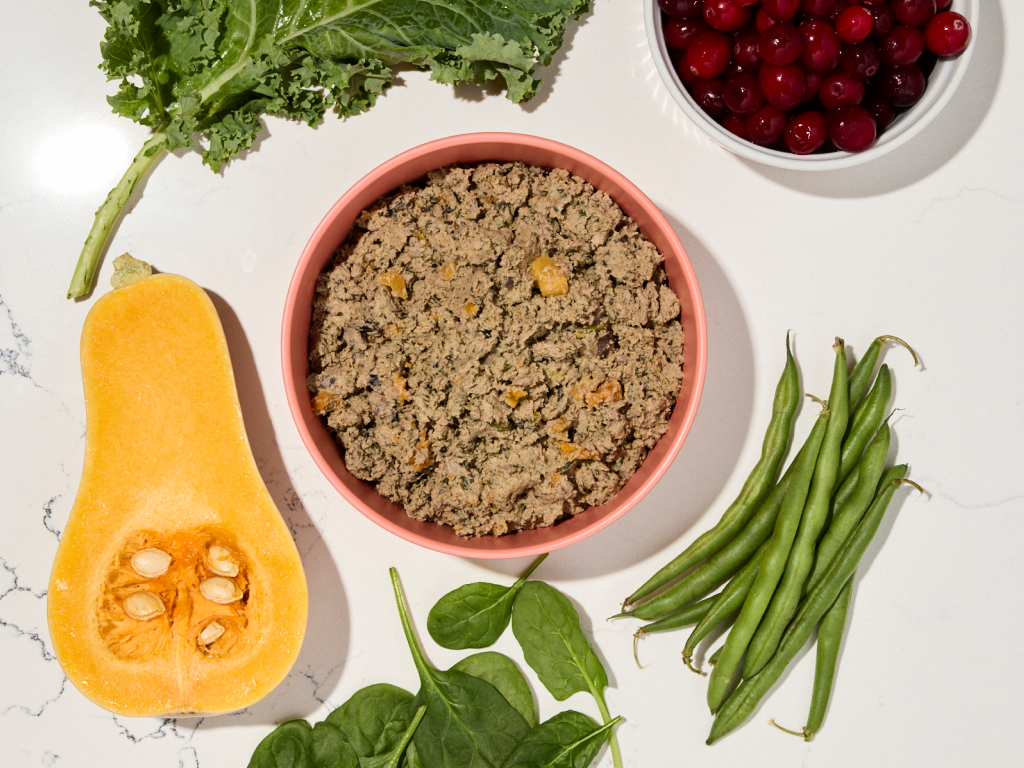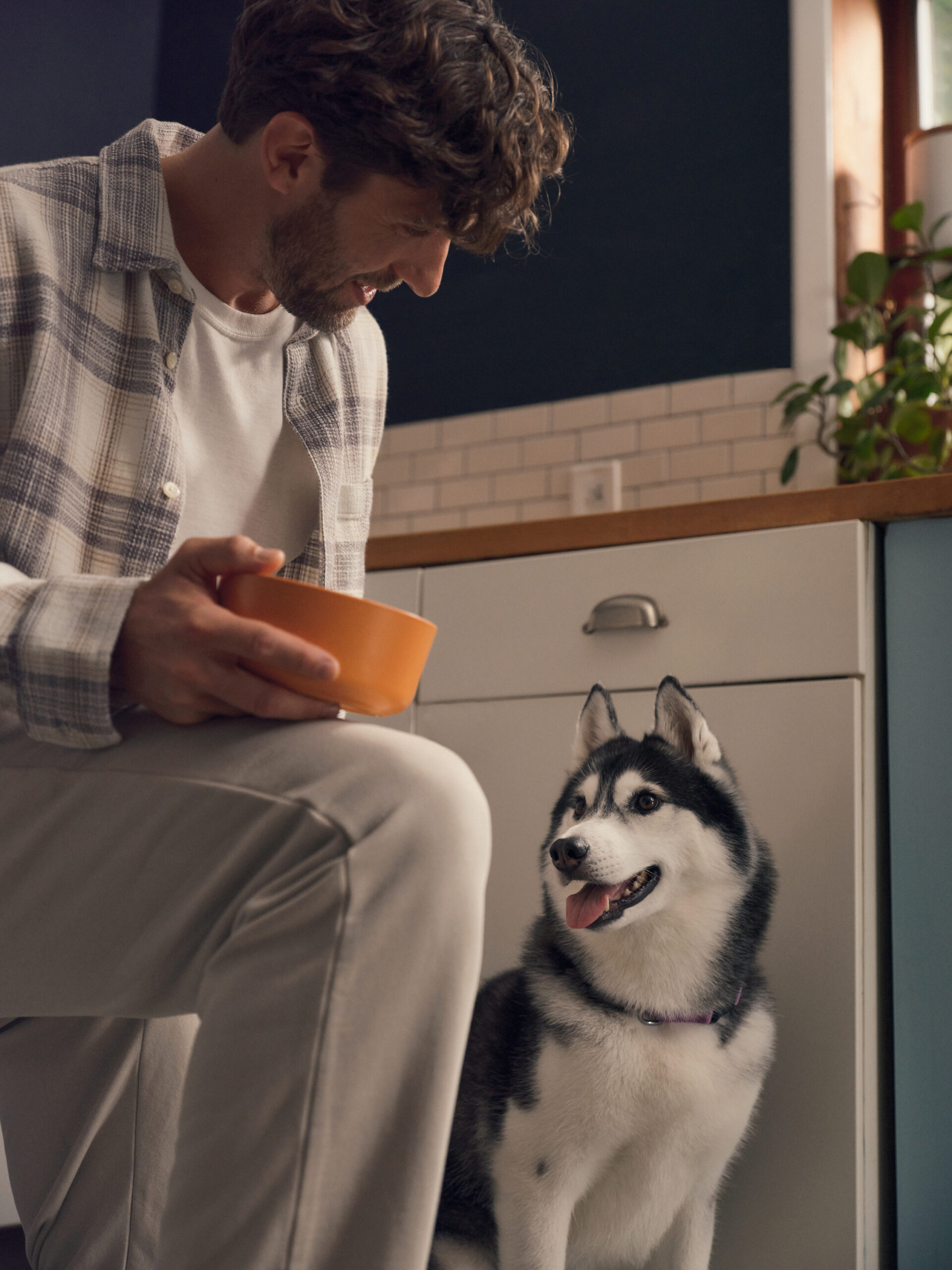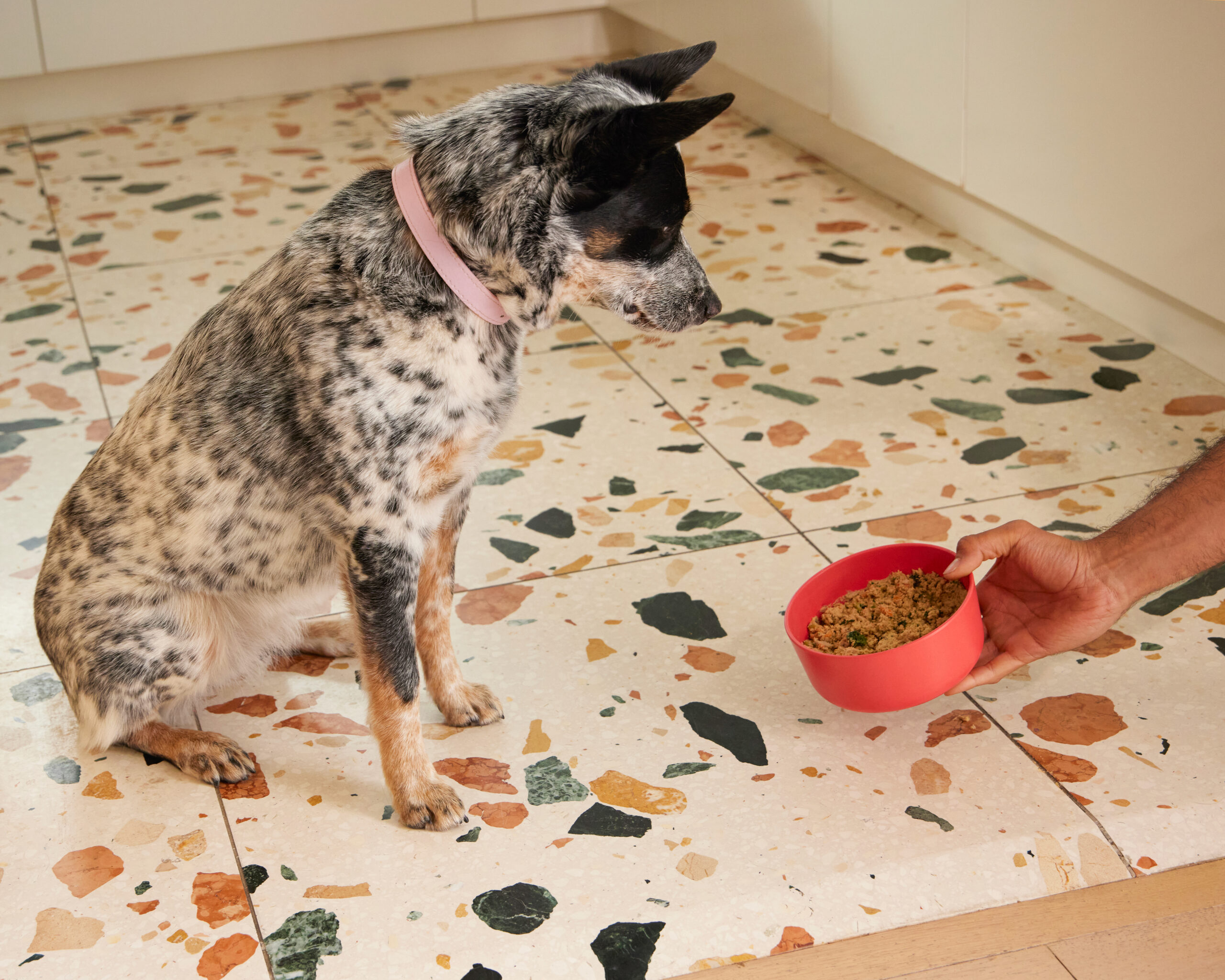Hey Ollie blog readers! We’re offering you an exclusive 60% OFF your starter box! Try now!
Many pup parents face the challenge of finding the right diet to support their dog’s sensitive stomach. The good news? Recipes tailored for digestive sensitivities can make a significant difference. In this guide, we’ll explore the best dog food for sensitive stomachs, diving into science-backed solutions, expert insights, and practical tips to help your pup thrive.
Whether your dog is a large breed with a tendency for softer stools or a small breed needing a balanced approach, we’ve got you covered. Let’s find the perfect diet to keep your pup’s tummy happy and healthy. Ready to get started? Discover how Ollie’s customized meal plans can support your dog’s unique needs by visiting our website today!
Understanding Digestive Sensitivities in Dogs
Digestive sensitivities in dogs can stem from a variety of causes, including food intolerances, allergies, infections, or even breed-specific anatomical differences. Symptoms often include loose stools, vomiting, gas, or a lack of appetite. Recognizing these signs early is key to finding a solution that works for your pup.
Breed-Specific Digestive Challenges
Did you know that the size of your dog can influence their digestive health? Research shows that large breed dogs are more prone to digestive sensitivities than smaller breeds, often presenting with softer, moister stools when fed the same diet. This is due to anatomical differences, such as a more developed caecum and colon, which result in longer colonic transit times and increased fermentation in the gut [1]. Small breeds, on the other hand, may face issues like constipation if their diet overly restricts fermentation.
Here’s how breed size can impact dietary needs:
- Large Breeds: Require highly digestible proteins and starches, limited fermentable fibers, and sometimes non-fermentable fibers like cellulose to improve stool quality.
- Small Breeds: Benefit from diets with cereal flours and non-fermentable fibers to prevent constipation while maintaining gut balance [1].
Understanding these differences can help you choose a diet tailored to your pup’s specific needs. Let’s dive deeper into the solutions.
What Makes Specialized Dog Food Different?
Specialized dog food is designed for pets with specific health needs or dietary requirements, particularly those with sensitive stomachs. These formulas are crafted with carefully selected ingredients to minimize irritation and maximize digestibility. Here’s what sets them apart:
- High-Quality, Digestible Ingredients: Proteins and starches are chosen for their ease of digestion. For instance, raw animal proteins often have higher amino acid digestibility compared to rendered meals [2].
- Avoidance of Common Allergens: Ingredients that commonly trigger food allergies or intolerances are excluded to reduce digestive upset [3].
- Inclusion of Gut-Supporting Nutrients: Many formulas include prebiotics to promote healthy gut bacteria and support overall digestive health.
As pup parents, choosing a specialized diet can be a game-changer. Curious about a personalized approach? Check out Ollie’s meal plans, crafted with veterinary nutritionists to support digestive health.
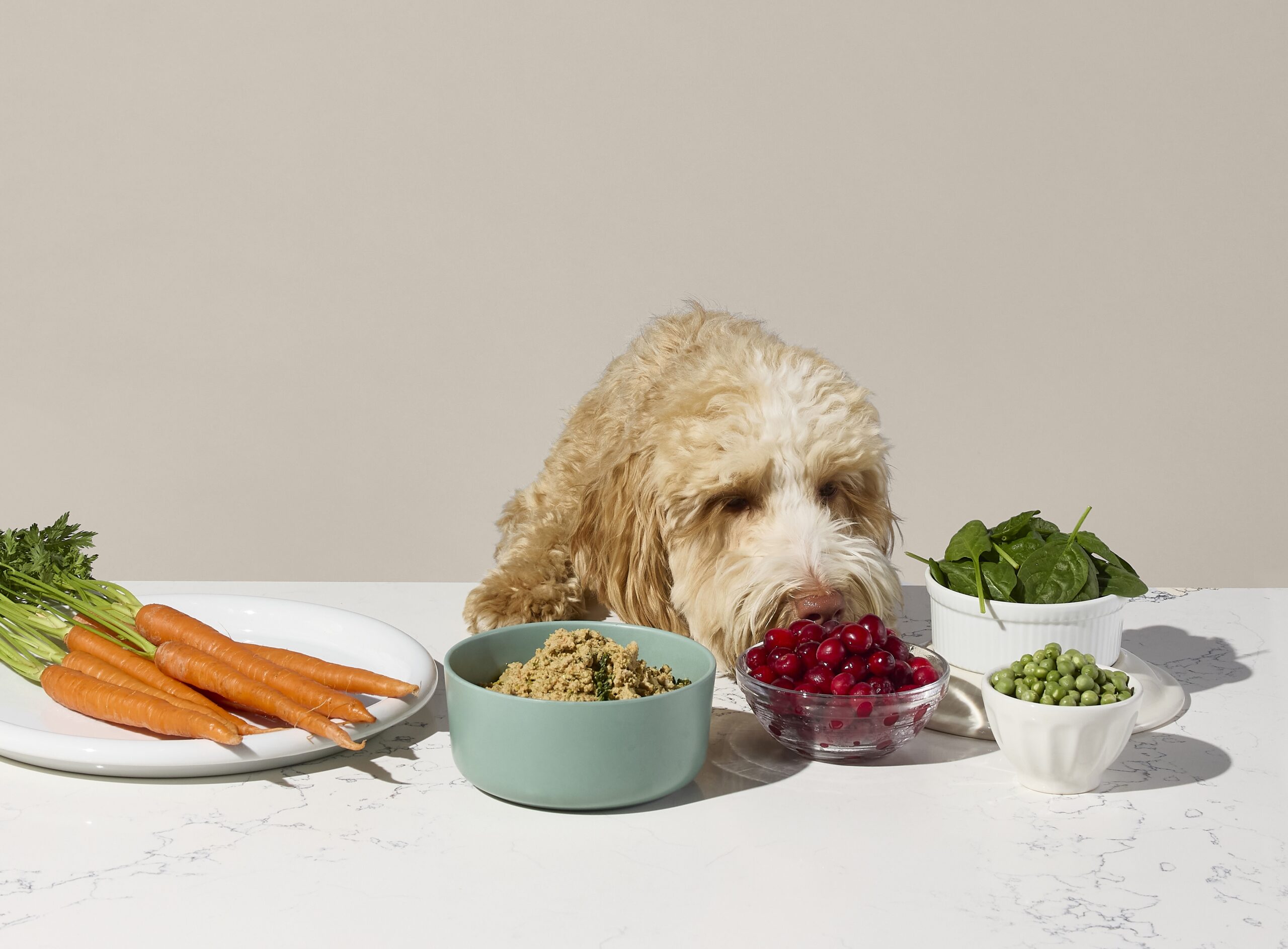
The Role of Probiotics in Digestive Health
Probiotics are live beneficial bacteria that can support your dog’s gut health, especially if they have a sensitive stomach. Research highlights their potential to help with conditions like acute diarrhea, gastroenteritis, and even chronic issues like inflammatory bowel disease [5].
Benefits of Probiotics for Dogs
- Reduced Diarrhea Duration: Probiotics can shorten the recovery time for dogs experiencing diarrhea.
- Balanced Gut Microbiome: They help minimize shifts in the gastrointestinal microbiome and normalize dysbiosis in chronic conditions.
- Strain-Specific Effectiveness: The benefits depend on the specific strain, dosage, and formulation, so it’s crucial to choose science-backed products designed for dogs [5].
However, while probiotics are generally safe, their effectiveness can vary, and they’re not a cure-all. Gastrointestinal issues may also stem from allergies or infections, so always consult your veterinarian for a proper diagnosis before starting supplementation [6].
Raw Diets vs. Cooked Diets: What’s Best for Sensitive Stomachs?
When considering the best dog food for sensitive stomachs, the debate between raw and cooked diets often comes up. While raw diets may offer higher digestibility due to unprocessed proteins, they come with significant risks.
Comparing Raw and Cooked Diets
| Aspect | Raw Diets | Cooked Diets |
| Digestibility | Higher amino acid digestibility from raw proteins [2]. | Slightly lower digestibility but safer processing. |
| Safety Risks | Potential for bacterial contamination like Salmonella or E. coli [7]. | Reduced risk due to cooking and quality control. |
| Suitability for Sensitive Stomachs | May cause upset if contamination occurs. | Often gentler on the stomach with controlled ingredients. |
For many pup parents, cooked diets are a safer and more reliable choice, especially for dogs with digestive sensitivities. Veterinary nutritionists often recommend sticking to high-quality, cooked specialized formulas to avoid risks while still supporting gut health [4].
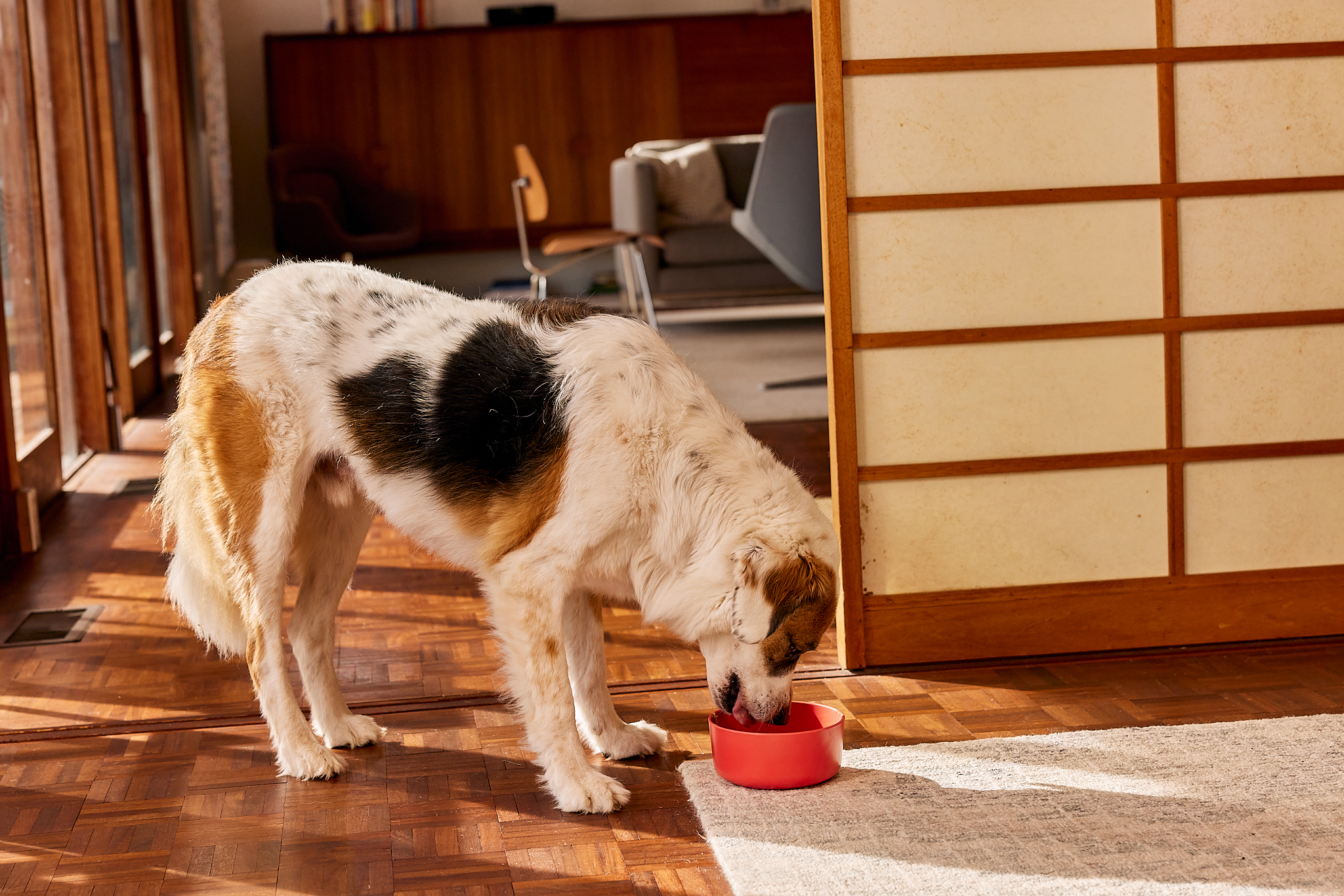
Tips for Transitioning to a New Diet
Switching your dog to a specialized diet for sensitive stomachs requires a gradual approach to avoid further digestive upset. Follow these steps for a smooth transition:
- Start Slowly: Mix 25% of the new food with 75% of the current food for the first 2–3 days.
- Increase Gradually: Over the next week, increase the proportion of new food by 25% every 2–3 days until you reach 100%.
- Monitor Your Pup: Watch for signs of improvement or any adverse reactions like vomiting or diarrhea.
- Consult Your Vet: If issues persist, speak with your veterinarian to adjust the diet or explore underlying causes.
Consistency is key, and with the right approach, your pup’s stomach will thank you. Ready to try a diet tailored to your dog’s needs? Explore Ollie’s customized meal plans for a hassle-free transition.
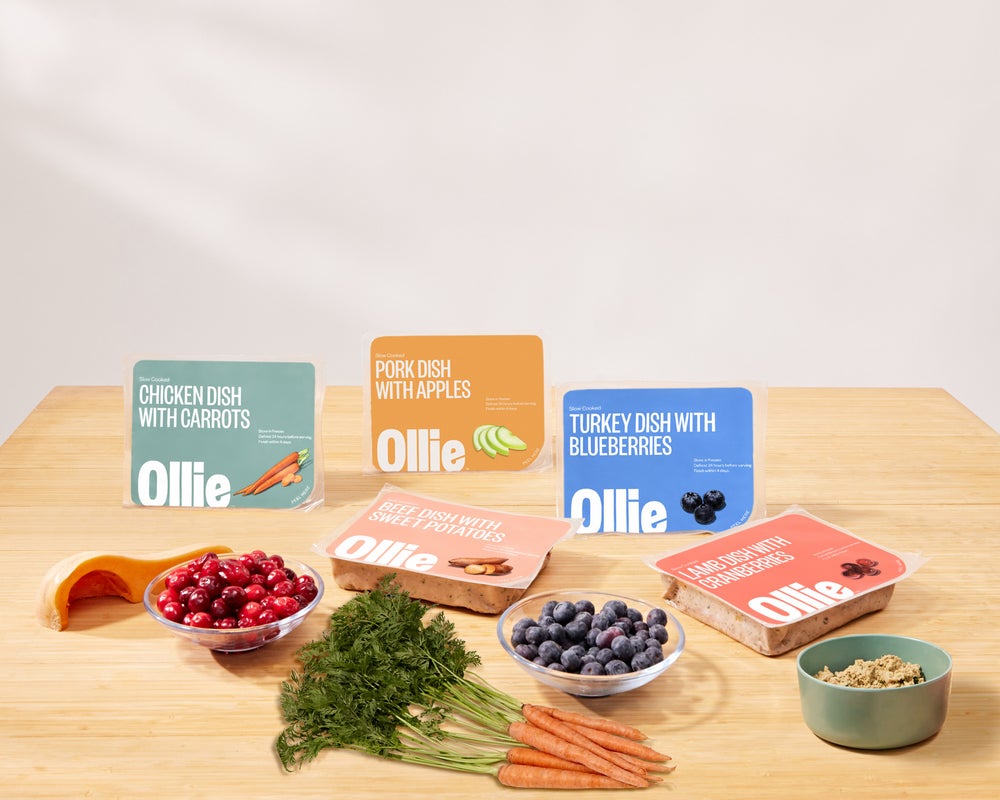
Conclusion: Find the Perfect Diet for Your Pup
Navigating digestive sensitivities in dogs can feel overwhelming, but with the right information and specialized dog food, you can help your pup feel their best. From understanding breed-specific needs to exploring probiotics and choosing between raw and cooked diets, you’re now equipped to make informed decisions. Remember, every dog is unique, so consulting with your veterinarian is always a great step.
Ready to discover the best diet for your dog’s sensitive stomach? Join the pack to get started on a personalized plan that prioritizes their health and happiness!
Frequently Asked Questions (FAQs)
What is the best dog food for sensitive stomachs? Look for specialized formulas with highly digestible proteins, limited allergens, and prebiotics. Brands like Hill’s Science Diet, Royal Canin, or Purina Pro Plan are commonly recommended options [4].
Are probiotics helpful for dogs with digestive issues? Yes, probiotics can reduce diarrhea duration and support gut health, but effectiveness varies by strain. Consult your vet for science-backed options [5].
Should I feed my dog a raw diet for a sensitive stomach? Raw diets may offer higher digestibility but pose safety risks due to bacterial contamination [7]. Cooked, specialized diets are often safer.
How do I know if my dog has a sensitive stomach? Common signs include diarrhea, vomiting, gas, and loss of appetite. A vet diagnosis can confirm the cause and guide dietary changes.
How long does it take to see improvement after switching diets? With a gradual transition, many dogs show improvement within 1–2 weeks. Monitor your pup and consult your vet if issues persist.
Citations
[1] https://pubmed.ncbi.nlm.nih.gov/27045769/
[2] https://academic.oup.com/jas/article/92/9/3781/4702209
[3] https://www2.johnrichmond.com/libweb/wp7ATV/4431390/sciencedietdogfoodsensitivestomach.pdf
[4] https://www.chewy.com/education/dog/food-and-nutrition/what-is-science-diet-pet-food
[5] https://isappscience.org/using-probiotics-to-support-digestive-health-for-dogs/
[6] https://www.tuftsyourdog.com/dogfoodandnutrition/probiotics-for-dogs-with-sensitive-stomachs/
[7] https://www.fda.gov/files/food/published/Bad-Bug-Book-2nd-Edition-(PDF
Tagged As:

The nutrition your dog needs,
the food they want.

Enjoying our articles? Subscribe our Newsletters and get new articles directly to your inbox
You might also like
2 July 2025
5 MINS READ
Upgrade Your Dog’s Bowl: The Truth About Premium Food Quality
Every pup parent wants the best for their dog, but choosing the right food for your dog can be overwhelming. With so many options, how do you know what truly makes a food “premium”? The answer lie…
by Serena
2 July 2025
5 MINS READ
Why Top Vets Recommend Premium Dog Food with Real Ingredients
A longer, healthier life starts with the right nutrition. The quality of your dog’s food can directly impact everything from energy levels to immune function. As more pet parents seek out the be…
by Serena
2 July 2025
6 MINS READ
Top Dog Food Options for Allergies That Truly Make a Difference
If your dog is constantly scratching, dealing with upset stomachs, or battling recurring ear infections, food allergies might be the culprit. Finding the right food for allergies can be a game-cha…
by Serena
